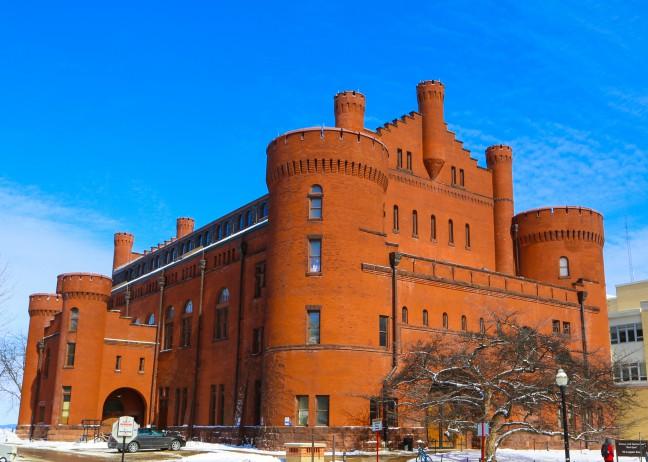A lack of resources in the University of Wisconsin’s College of Letters and Sciences has led the Afro-American studies department to consider consolidating several departments and programs into a larger ethnic studies department.
Every 10 years, departments across campus undergo a review process. This year, the Afro-American studies department is undergoing its review, department Chair Craig Werner said.
During a department’s 10-year review, internal and external committees conduct an official analysis that includes meetings with staff members, observing progress in the curriculum and examining what resources are available, Director of Chican@/Latin@ studies Ben Marquez said.
Werner said they were told resources in the college were limited.
“We could discuss reform, but the definitive form was not specified,” he said.
The department consulted with program administrators in Asian American studies, American Indian studies and Chican@/Latin@ Studies to explore a new “relationship or reorganization” between these programs and Afro-American studies, Werner said.
Discussion of a new “ethnic studies” department have been ongoing, but no formal process or action is being taken at this time, Werner said.
The three programs involved are already understaffed, Marquez said. Asian American Studies and American Indian Studies only have 2.5 full-time faculty members and Chican@/Latin@ Students has none, meaning all of their faculty are tenured through other departments, he said.
Additionally, full-time Afro-American faculty decreased from 12.5 to 6.5 since the last review, Karma Chávez, a communication arts professor, said in an email to The Badger Herald.
Marquez said his department and others are already fiscally strained and working with limited staff. A new department could mean that certain staff members might have to move part of their tenure, which can be a difficult process with few advantages, he said.
L&S does not have the resources to hire full-time faculty members for these programs, Marquez said. The program is unique because faculty members are chosen to teach the courses because of they are invested in the subject matter, not because they are paid to, he said.
Chávez said UW should be investing in programs that promote diversity.
“UW has put very few resources to studies of race, ethnicity and indigneity in the time I have been here and talks of consolidation have been on the table several times before,” Chávez said.
Marquez said he believes a combined department has been denied in the past because faculty serve their students better in more individual programs. He also said he is concerned about the effects a new department might have on teaching staff.
It is too early in the discussion to predict how this could affect students in these certificate programs, Marquez said.
“Right now, I don’t see many advantages to a change this big,” he said.
Each of the individual programs arrived on campus in unique ways, and their students have pride in that history, which is why Chican@/Latin@ Studies decided to inform its students about the discussion of this potential rebuilding tactic, Marquez said.
A group of Chican@/Latin@ major students are holding an event Thursday night to raise awareness for students enrolled in American Indian Studies, Asian American Studies and L&S certificate programs and to encourage them to seek more information from the heads of their departments, Arturo Diaz, a Chican@/Latin@ student and event coordinator, said.
Marianna Rivera, another student leading the event, said they are in the process of sending Dean John Scholz a formal letter, asking for direct and concrete explanations.
“I am on the fence about it because even though the departments are short on resources, generalizing all four of them under the term ‘ethnic’ defines each program under a broad definition,” Diaz said. “We want to gauge the feelings of other students and bring it to their attention.”


